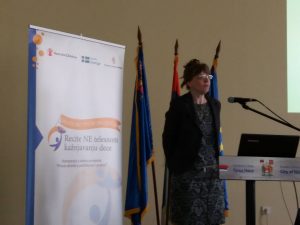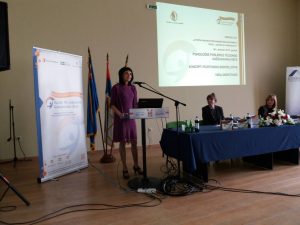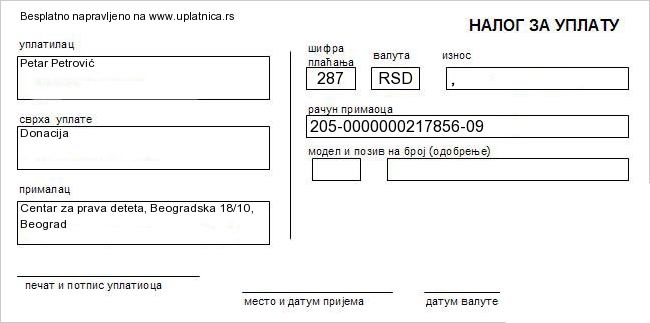
The second public debate entitled „Аn explicit ban on corporal punishment of children in Serbia in all settings – positive parenthood” was held at the XXIV National Social Welfare Professionals’ Conference in Niš on 19 October 2018. This public debate was jointly organized by the Niš Centre for Social Work “Sveti Sava”, the Chamber of Social Protection and the Child Rights Centre. The topic of this year’s conference was entitled: “Parenting – a gift, a difficulty, a chance”. This expert meeting gathered a large number of experts from the field of social work, judiciary, state administration bodies and academics from different institutions.
The topics discussed at the roundtable were focused on improvement of normative framework for banning corporal punishment of children in all settings in Serbia, psychological and social consequences of corporal punishment on child, as well as the role and place of professionals in promoting positive, non-violent and participatory ways of educating and disciplining a child. The key note speakers at the roundtable were the following:
- Dr Ivana Stevanović, President of the Child Rights Centre, Director of the Institute for Criminological and Sociological Research and member of the Child Rights Council of the Government of Serbia;
- Vera Despotović, PhD, consultant at the Child Rights Centre and Assistant Professor at the Faculty of Media and Communication, University Singidunum;
- Svetlana Mančić, psychologist at the Centre for Social Work in Niš, Family Counseling Centre;
- Milena Golić Ružić, Programme Manager of the Child Rights Centre.
A number of issues discussed among participants were related to the complexity of the phenomenon and the necessity of introducing the explicit legal ban of corporal punishment of children in all settings in the current social context of Serbia. It was pointed out that there is a need to additionally support parents and the whole society in order to better respond to the challenges that parenthood brings, as well as to continuously work on removing wrong attitudes and strengthening parental competencies and skills. It was also emphasized that there is a need to empower professionals to provide support to parents in dealing with all these challenges. It was recommended that the professionals should start with the support of parents at the earliest calendar age of children and to strengthen capacities of professionals in different sectors (social protection, healthcare, education) that would most likely provide support to parents in upbringing of their children.
The roundtable is part of the activities that are implemented in the context of the project “Child Rights in Policy and Practice”, implemented by the Child Rights Centre in partnership with the Save the Children International, funded by the Government of Sweden. This project aims to improve child protection system, as well as structures and mechanisms for monitoring and implementing the rights of the child, including the participation of children in these processes in Serbia. Within this project, the Child Rights Centre raises public awareness of the consequences of corporal punishment of children, especially among parents, promotes positive and non-violent methods of upbringing, and introduces the public with the rights of child in general.


